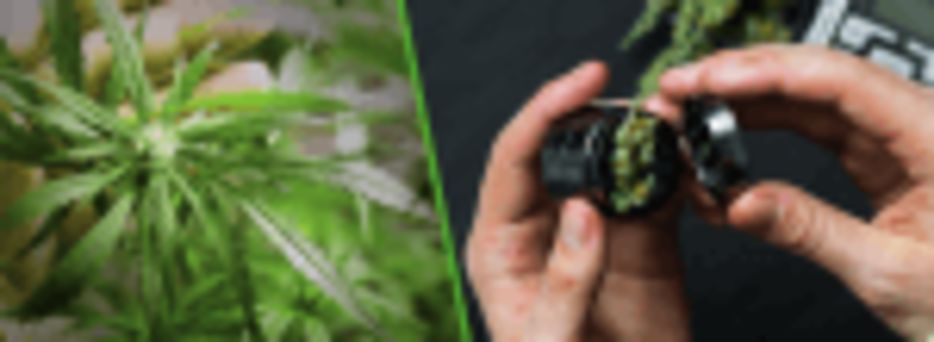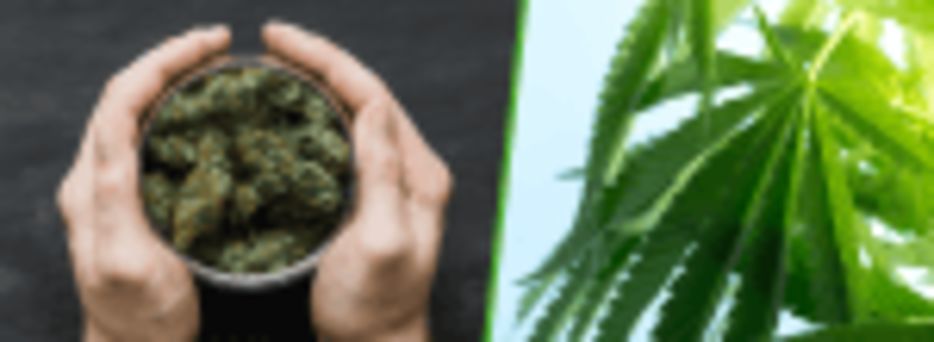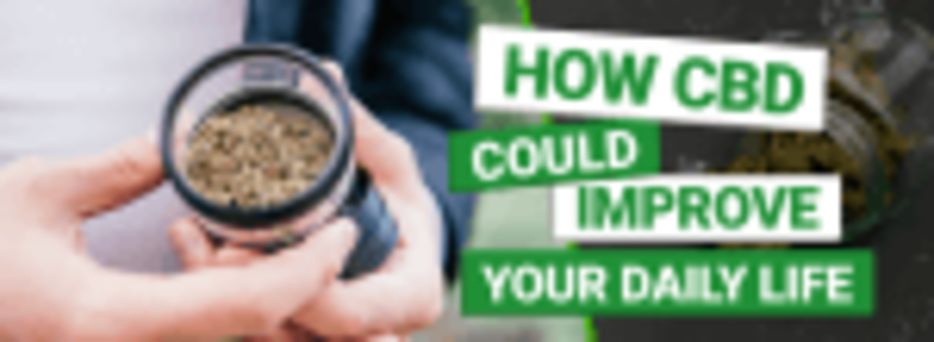In a recent post, we talked a little about how CBD could brighten your life and make you feel, well, better — even though it’s far from being characterized as a traditional psychedelic.
And if that post got you interested, this one is designed to bring theory into practice. Consider it a comprehensive guide to the in’s and out’s of life with CBD!
- CBD 101
- How to take CBD
- The best CBD dose
- Microdosing with CBD
- Combining CBD + psychedelics?
- Integrating CBD into daily life
- CBD morning rituals
- CBD skincare
- CBD for athletes
- CBD: a nootropic?
- CBD recipes
- CBD coffee
CBD 101
Like so many other plant-derived compounds, humanity’s use of CBD is just about as old as dirt.
Many experts believe things go back as many as 10,000+ years. At first our use of hemp seemed relegated to more industrial stuff; one ancient Chinese emperor taught his subjects to grow hemp and developed a prototypical hemp paper. A little later on this type of paper would be the medium through which Buddhist ideals were first shared with the world.
The ancient Egyptians and Israelites also made extensive use of the hemp plant; among other things they leveraged its more mystical properties to receive messages from their respective Gods. As Dr. Tod Mikuriya attests, “the use of hemp preparations as a remedy was described before 1000 B.C. In Persia, cannabis was known several centuries before Christ.”
Of course, the ancients didn’t call it CBD, nor did they have any way to discover CBD’s existence. But they did know through experience that CBD-rich hemp was one of the best ways to stay in homeostasis — that state of perfectly balanced health.
How to take CBD

The most traditional way to take CBD is simple: just procure some hemp flower, dry it out, then smoke it!
In the 1800s, more ‘sophisticated’ delivery methods like the CBD tincture came to light. After observing hemp’s incredible effects while working in India, an English doctor named William O’Shaughnessy brought CBD-rich hemp to the West. He christened it as “an anti-convulsant of greatest value,” something that wouldn’t be confirmed by modern science until over a hundred years later.
Indeed, it wouldn’t be until 1940 that CBD was discovered — and the researchers who made the discovery first through it was inactive. In 1963 a young Dr. Raphael Mechoulam took these early discoveries further by fully elucidating CBD’s chemical structure.
It was at that point that the research really took off. Working alongside a truly expert team, Mechoulam proceeded to discover CBD’s anti-inflammatory, anti-convulsant, and anti-oxidant properties.
What made all these benefits possible? For the longest time, nobody really knew; the full picture didn’t come together until 1993, when Dr. Mechoulam’s team made another huge discovery. This time around they uncovered the existence of a specialized endocannabinoid system buried deep within human biochemistry. Everyone had such a system, it turned out, and this system regulated virtually everything.
All of a sudden, cannabis’s holism and power made total sense.
The best CBD dose
While the research has continued to advance since Mechoulam’s initial discoveries, one facet of CBD science has remained elusive: the subject of dosing. Some people seem to thrive on a low dose; others require an ultra-high dose. “Dosing cannabis is unlike any therapeutic agent to which I was exposed in my medical training,” attests CBD expert Dr. Dustin Sulak.
And that means the traditional one-size-fits-all dosing paradigm simply doesn’t work. Those who take CBD will have to find the best approach for themselves.
That said, there are some good guidelines to follow. One concept to keep in mind is referred to as “start low, go slow” — and it’s about as simple as it sounds. New CBD consumers should start with a low daily dose around 2-5 milligrams/day. Some people begin even more conservatively by taking just a single drop!
Granted, a single drop of CBD oil probably won’t be enough to radically improve your health. But it could be a good baseline from which to move upward. Remember to take your daily dose of CBD consistently, and slowly progress from 2 to 5 to 10 to 15 milligrams/day as needed. You might wind up at 10 mg/day as your new optimal; but then again, you might wind up at 50.
The other major element of CBD dosing relates back to your endocannabinoid status. Those low in endocannabinoids will likely need more CBD to compensate; if you’re endocannabinoid replete, on the other hand, you’ll probably need less. Here’s the thing, though: we just don’t have the technology needed to measure endocannabinoid levels at home yet.
The solution — for now, at least — is to approximate them by taking an assessment of your health. Is your health good? Does your body respond well to stress? If so, you probably have adequate endocannabinoids and only need a low-to-moderate dose of CBD.
If your health has major room for improvement, on the other hand, you might have an endocannabinoid deficiency that necessitates higher doses of CBD. Here are some additional things to ask yourself:
- Do you have chronic migraines?
- Do you have IBS, Colitis, or Crohn’s disease?
- Do you have an autoimmune disease — or several?
- Do you find yourself getting stuck in negative thinking patterns?
- Do you have PTSD, anxiety, depression, or other mental health challenges?
- Do you have aches and pains that can’t be explained by an actual physical injury?
If so, you might just have what some experts call clinical endocannabinoid deficiency syndrome, or CED. “Migraine[s], fibromyalgia, [irritable bowel syndrome] and related conditions display common clinical, biochemical and pathophysiological patterns that suggest an underlying clinical endocannabinoid deficiency that may be suitably treated with cannabinoid medicines,” Dr. Ethan Russo summarized in his first research review of the topic.
Thankfully, the solution to CED is a pretty simple one. Take CBD, get plenty of sleep, eat a healthy, omega 3-rich diet…and supplement with some THC-rich cannabis as you see fit.
Microdosing with CBD

There’s another approach to CBD dosing that we haven’t really mentioned yet: microdosing. Compared to the traditional “start low and go slow” approach, microdosing involves keeping yourself at a very low dose — and simply taking it more frequently as needed.
Microdosing has several advantages over other methods. For one, it allows you to really dose by feel. You don’t have to wait days or weeks to find the right dosage for you. Instead just listen to your body and how it responds to a standardized small dose of, say, 1-3 milligrams; when you begin to feel this dose wear off, take some more!
One thing to keep in mind about microdosing CBD: some delivery methods are better suited to it than others. Microding with CBD edibles would be pretty tricky, just because they take so long to kick in. And who wants to divide up a single CBD-infused gummy 10 ways?
No, there are better options. CBD tinctures and vapes tend to work best for microdosing because you can take literally any dosage you want. Figuring out how to take 2 milligrams every 2 hours from a 1,000mg CBD product may take a few moments of math, but what’s life without a little intention and effort? Vape pens are also great because they kick in nearly instantly. Use them in conjunction with tinctures and you’ve got a recipe for success — especially if you deal with challenges like depression and anxiety.
Combining CBD + psychedelics?
CBD may not be psychedelic, but that doesn’t mean it should be ignored by the dedicated psychonaut. CBD actually pairs pretty well with psychedelic and/or psychoactive substances. Despite what you might think, it binds to the very same serotonin receptors that psilocybin and LSD do.
Why isn’t CBD psychedelic, then, you might ask? Because it binds to joint CB1 + serotonin receptor complexes are known as heterodimers. In other words, the mere act of taking CBD seems to change the way your brain’s signalling systems structure themselves.
And this means taking CBD alongside psilocybin (or THC, for that matter) might provide a counterbalancing effect. If you want to experience the neurochemical benefits of these substances without the runaway high, consider supplementing your normal routine with a little extra CBD!
Dr. Ethan Russo agrees. There’s an “ outstanding body of experimental evidence,” he says, “[to] suggest that THC is hallucinogenic while the closely related cannabinoid, cannabidiol [CBD] opposes such activity.” Perhaps there’s a good reason why wild-growing cannabis tends to have a more balanced cannabinoid profile than some modern-day strains…
For more info on this fascinating (and complex!) subject, Project CBD has a pretty comprehensive article. You can check it out here.
Integrating CBD into daily life
Now that we’ve covered some of CBD’s top benefits, it’s time to really get into the compound’s potential applications. Integrating CBD into daily life is easy — here are some highlights.
CBD morning rituals
While spontaneity can be a good thing, what’s life without some type of daily routine? Most of us knock out all the small stuff with some regularity; we’d bet you’ve made it a habit to brush your teeth, shower, shave, take a daily multi or two, et cetera.
And your CBD use can be equally straightforward…if you take some time to incorporate it into your morning ritual, that is. Consider taking CBD at the same time every morning, perhaps right after taking other vitamins/supplements. You might even take it your CBD with breakfast in light of how the compound’s absorption is enhanced by a fatty meal.
CBD skincare
If you already have a solid skincare routine, this one is easy. CBD’s anti-inflammatory properties make it great for maintaining youthful skin, so consider adding a few drops of your favourite CBD oil to your favourite moisturizer. Talk about a match made in heaven!
Those who want to take CBD skincare really seriously can always purchase a CBD-infused product; there are more and more such products available.
Aestheticians are getting behind CBD, too. As NYC-based Jeannel Astarita explains to Allure, “an impressive and evergrowing number of studies finding CBD to be a powerful antioxidant and anti-inflammatory among many other properties…”
CBD for athletes
Attention, athletes: CBD’s not just for the sick and ailing. The very same qualities that make it great for epileptics and cancer patients make it great for you.
Indeed, CBD directly counteracts some of the biggest barriers to recovery that athletes face. It’s anti-inflammatory, anti-oxidation, anti-cortisol, and more. Heck, CBD’s utility as an adaptogen means it’s anti-stress in general. No wonder World’s Strongest Man and world-record deadlifter Eddy Hall calls CBD a secret weapon for faster recovery. And faster recovery = more training time = more strength and/or endurance gains.
CBD: a nootropic?
CBD’s brain-based benefits don’t stop with those serotonin receptors we described earlier. CBD may also help the brain shift towards the stablest fuel source of all: fat burning. Many users report stabler energy, reduced brain fog, enhanced creativity, and more. And the compound’s neuroplastic properties mean it could help you avoid distractions and stay productive.
If you’re ready to get into your flow state, consider CBD microdosing. It’s probably the best way to experience consistent cognitive benefits.
CBD recipes
Contrary to what you might think, CBD dosing doesn’t have to be boring. CBD can actually be tastefully infused into many recipes, so long as your recipe of choice doesn’t call for super high heat!
Cooking with CBD is also a great way to ensure you’re keeping enough of the compound in your system. Here’s to making a batch of non-psychotropic edibles,or two…
CBD coffee
Last, but definitely not least, is CBD coffee. If you’re looking for a way to incorporate CBD into your day that’s both convenient and delicious, look no further — this is probably it. Making CBD coffee is simple: just stir a few drops of CBD into your favourite coffee and enjoy.
Alternatively, you can take things a few steps further by making CBD bulletproof coffee. For those unfamiliar, bulletproof coffee is a delightful combo of coffee and MCT oil, butter, or ghee. Why not add another healthy fat source in the form of CBD oil? Your body (and taste) buds will thank you. And given both CBD and MCT oil have known cognitive benefits, so will your business partners.




